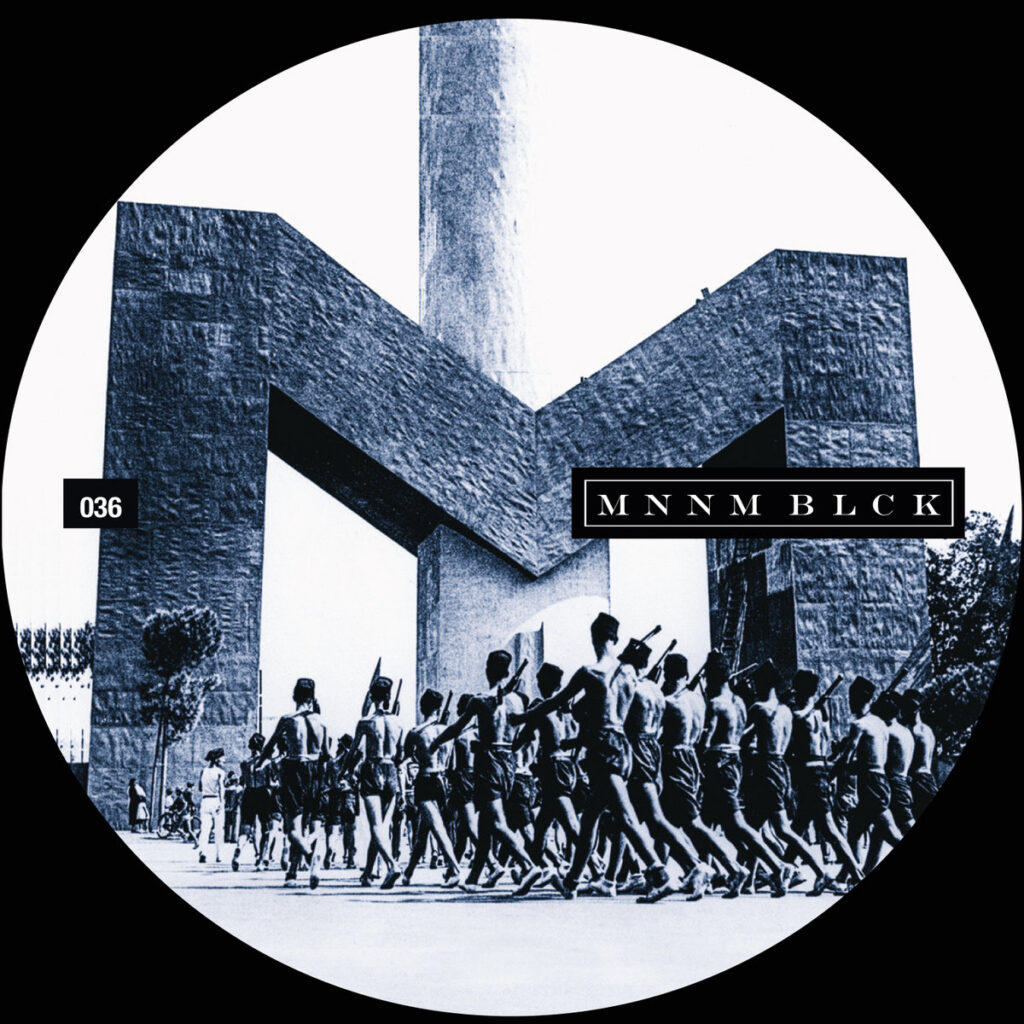
Dax J contrasts the warmth of classic Electronica ideas with cold metallic Techno principles and rigidity on his latest album, “War Is Peace, Freedom is Slavery, Ignorance is Strength” on his home label, Monnom Black.
If we’re going to take the album title at face value, and this is some rebellion against INGSOC societal values presented in Orwell’s 1984, then the rebellious nature of the warmth of classic electronica ideas is the “spreading chestnut tree” where we meet to flee from the cold and oppressive ideas presented in soulless emotionally dead Techno.
The world we live in is also a representation of this escape—the people who are kind, good, and happy wish to leave behind the oppressive and increasing threats of fascism that are ever present everywhere you go.
Dax J’s mind is always questioning and curious, always willing to try something new, making him quite a joy to talk to. So too, is his passion for the history of English electronic music, that the representations of it that manifest themselves on the album are a throwback to an era of 90s Acid House and Breakbeat Hardcore, in a time where we all wanted to build a utopia based on mutual understanding and extreme empathy. It’s something that is very much lacking in today’s world.
Some great representations of this utopian idea are thrust against icy and metallic sounds. A good example of this could be found in “Anti Gravity Racing,” which seems to be a nod to the PS1 game Wipeout XL and its acclaimed associated soundtrack “Wipeout 2097”. Tracks like Fluke’s “V Six” and Underworld’s “Tin There” both provide this feeling of floating while navigating a fast-paced race.
Another example can be found in “Femme Fatale”, where classic Techno soul meets some Trance analogs with its gliding feeling and swirling synths that harken back to Megalon’s “Sorceror (Funky Magus Mix).” Even “Orwellian Times” share the same frenetic pace of Juno Reactor’s “Feel the Universe” at the early to the mid mark of that song.
The rest of the album doesn’t have such a direct reference towards the past, but it still plays along well with classic sounding synths, which are quite mysterious in how Dax J can get such a closely 90s reverent sound but use them in new ways. “Tropical Grift” is a perfect example of this. We have the classic tribal beat chops but also the interstitial sampled hits of classic styles synths. The origins of these synths and their classic styling seem most closely related to Roland, since in the 90s the sound of Roland synths was ubiquitous. The track “Tropical Grift” also presents these ideas in a very unfamiliar way. The coldness of the icy cymbals against the almost randomness of the synth placement leaves you very bewildered and never lets your mind land on anything. As such, the composition is sensory overload and your brain shuts down amid the sensory onslaught.
Lots more examples of this are present, and “Overclocking” even gets in a classic 90s synths chord stab here and there. Mostly the ideas are a classic late 90s beat chop a-la Swechno and Jeff Mills mixed with the coldness of the cymbals and thinned percussion so that the warmth of the low end is removed. It’s then mixed with classic synth explorations and is something that Dax has a way of showing the past as he’s been a major proponent of this era of Techno, whether toting crates of classic vinyl all over the world or doing mashups of classic rave tracks on the fly while DJing digitally. It goes to show that Dax J is always looking to be a student of what has come before and present it to the world as he understands it.
For an album, this represents something of a statement of where the artist has come from, and maybe presents a desire or hope to go back to those days when all walks of life showed up together to dance and seek a sense of unity while looking to change the world for the better. Dax J presents the example that if one can learn from the past as he has, we can do the same. The album shows that we all can stand to look at what came before and bring it forward to the present day and within the context of our own lives. Be it the amazing ideas presented in a simple video game soundtrack that was merely to be played at an afterparty, the hybrid analogs of the beginnings of Trance and progressive music ideas within Techno, or just to be comfortable with an idea of these dope classic synth ideas.
It’s somewhat sad but also telling that there’s a great sense of innocence lost today. The early years of rave were supposed to provide a world where everyone was going to be living in this world of human and solar punk-themed ecological harmony. Instead, we’re faced with ecological collapse, fascist fear-mongering, propaganda, and outright terrorism. In a post 9/11 world and compounded by the United States R.A.V.E. Act (Reducing Americans Vulnerability to Ecstasy), the rose-colored glasses were ripped off forcefully, and we as a society gave up in a lot of ways.
This album seems to say we don’t have to give up on those ideas, and instead, we can learn from that era and come forward together with peace, love, and unity.
-Sean Ocean
Check out Dirty Epic music recommendations here.
Listen to our podcasts here.
Find out more about our Events here.
Listen to our review picks here.

